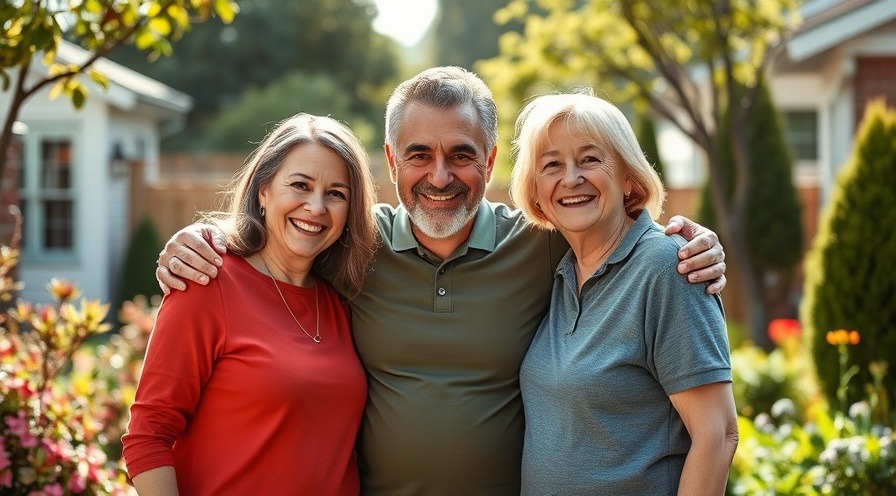
How Self-Advocacy Can Change the Odds for Cancer Patients
In the powerful video, "Angela’s Story: Changing the Odds Through Self-Advocacy," we follow the journey of a woman named Angela, who faced the daunting challenge of a cancer diagnosis. This story highlights more than just a personal battle; it shines a light on the broader community issues surrounding cancer screenings and care accessibility, especially in rural areas. Patrick Dempsey, the host, aims to spark national conversations around these issues, urging people to take action and advocate for themselves and others.
In Angela’s Story: Changing the Odds Through Self-Advocacy, we delve into the crucial topic of advocating for cancer screenings and the barriers faced by many.
The Importance of Early Detection
In Angela's case, she might have ignored the lump she found if not for her partner, Kyle, who encouraged her to seek medical attention. This underlines a crucial point: catching cancer early can significantly improve one’s chances of survival. According to health experts, early detection is key, making regular screenings vital. Angela's experience raises awareness about the risk of young individuals feeling invincible and neglecting to pursue potentially lifesaving checkups.
Connecting with Others: Community Support Matters
Angela's story highlights the loneliness often experienced during health crises, particularly during the COVID-19 pandemic when many had to attend appointments alone. This isolation can exacerbate fear and anxiety. "Every step I could had to go in by myself," Angela recalls. This speaks to a larger issue: the need for community support in health journeys. Reaching out to friends or support groups can reinforce that no one has to face their battles alone, allowing individuals to share their fears and experiences with others who truly understand.
Understanding Emotions in Crisis Situations
Facing a cancer diagnosis can evoke a myriad of emotions, including fear, anger, and confusion. Angela’s candid reflections on feeling guilt when surrounded by healthy loved ones are all too relatable. It’s important to normalize these mixed feelings. Seeking guidance—whether through counselors, doctors, or peer support—can help individuals process their emotions in a healthier way.
Practical Tips for Proactive Health Measures
For readers concerned about cancer, Angela’s story offers actionable insights. Here are some steps to take:
Set reminders for regular screenings: Make appointments for mammograms, colonoscopies, or skin checks that are appropriate for your age.
Educate yourself: Stay informed about your family history and the risks associated with different types of cancer.
Communicate: Talk to family members about health concerns. Often, sharing these worries can motivate action and support.
Join local support groups: Connecting with others who share similar experiences can foster community and reduce feelings of isolation.
The Power of Storytelling in Health Advocacy
Angela's narrative is not unique but resonates with thousands facing similar battles. By sharing her journey, she helps break down stigma around cancer, encouraging others to have open conversations. As Patrick Dempsey emphasizes, "The barriers to cancer screening and care can't be overcome without talking about them." This highlights the vital role that storytelling and advocacy play in health awareness.
Final Thoughts: Let’s Start Conversations
If you or a loved one is facing health challenges, it’s essential to engage in open discussions about symptoms, screenings, and care options. Angela’s story encourages us to advocate for ourselves and others. Through open dialogue on front porches, at kitchen tables, and in community centers, we can foster a supportive environment that promotes health and encourages proactive measures against cancer. Start your own front porch conversations today; the more we talk, the more we can change the odds.
 Add Row
Add Row  Add
Add 




 Add Row
Add Row  Add
Add 

Write A Comment